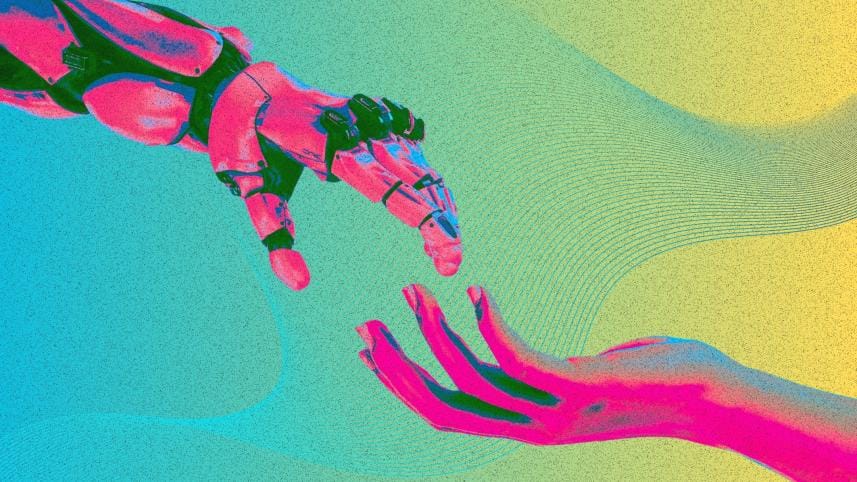Why AI literacy will future-proof your career

Artificial intelligence (AI) isn't just changing how we work; it's reshaping what skills are in demand, which jobs will grow, and how careers will evolve. Whether you are looking for your next role or aiming to stay ahead in your current one, adapting to this shift is no longer optional - it's mandatory. A new study from LinkedIn and Access Partnership, titled 'AI and the Global Economy: Unlocking Growth and Reshaping Work', offers interesting insights for job seekers and professionals navigating this new landscape.
According to the study, generative AI (GAI) tools that can create content, code, design, and analyse data are being rapidly adopted by companies across sectors. In fact, 76% of businesses that have integrated GAI report major time savings. But more interestingly, the majority are not just using AI to automate routine tasks, they are using it to unlock innovation, spark creativity, and fuel business growth. So, what does this mean for your career?
First, AI literacy is quickly becoming a must-have skill. You don't need to be an engineer or data scientist, but understanding how to use tools like ChatGPT or Microsoft Copilot is increasingly expected. As per the report, job postings that mention AI literacy skills have increased more than six times over the past year. And two-thirds of business leaders now say they would not hire someone who lacks basic AI skills. The good news? These tools are accessible, and learning how to use them does not require a degree, just curiosity and practice.
However, being AI-literate alone is not enough. People skills are rising in value. While AI handles more of the technical and operational workload, human qualities like communication, leadership, problem-solving, and emotional intelligence are what make the real difference. The study found that eight out of the top ten fastest-growing skills on LinkedIn are actually people skills. In other words, soft skills are now hard currency.
Interestingly, this tech wave isn't expected to wipe out jobs, it could actually expand them. The report states that two-thirds of businesses using GAI plan to increase headcount, especially for roles involving creativity, strategy, and customer interaction. AI is freeing up time and opening new possibilities, and companies are looking to hire people who can capitalise on that potential.
For professionals early in their careers or those exploring new directions, it is worth noting that many entry-level roles are highly exposed to AI disruption. Positions like administrative assistant, legal associate, and customer service agent are likely to change significantly, according to the research. This does not mean these jobs will disappear, but they will require new skills. If your role involves repeatable, routine tasks, it is especially important to start exploring how you can upskill or pivot.
And here's where agility matters most. By 2030, the report projects that 70% of the skills used in current jobs will have changed. That is a staggering shift. The professionals who thrive won't be the ones who resist change, they will be the ones who embrace learning, stay curious, and evolve.
One final takeaway is that skills, not degrees or job titles, are becoming the true markers of potential. Skills-based hiring is on the rise, and the study suggests it could expand the global talent pool for AI-related roles by over eight times. For job seekers, this is great news. It means your ability to demonstrate what you can do is becoming more important than where you studied or what your last job was called.
The bottom line? Whether you are job hunting or aiming to stay competitive in your current role, now is the time to invest in yourself. Explore AI tools, build your digital literacy, and polish your communication, leadership, and creative thinking abilities. The AI revolution is well underway, and those who upskill today will be tomorrow's front-runners.
If you are looking to future-proof your career, the best time to start is now.

 For all latest news, follow The Daily Star's Google News channel.
For all latest news, follow The Daily Star's Google News channel.
Comments